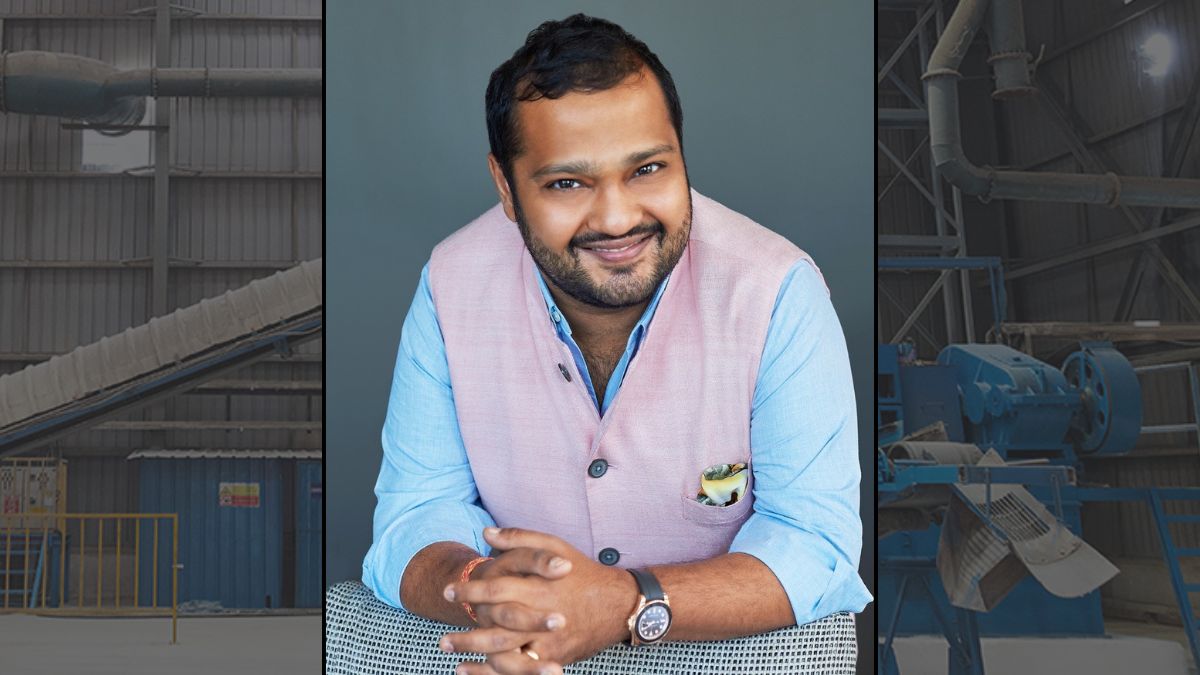Runaya sees big opportunity in recovering metals from tailings, EV value chain
 Runaya MD and co-founder Naivedya Agarwal | Runaya
Runaya MD and co-founder Naivedya Agarwal | Runaya
Anil Agarwal built a global metals and mining giant in Vedanta Resources. His nephews Naivedya and Annanya also aspire to make it big in metals, but with sustainability and recycling at the core of their company Runaya.
"A lot of the startups today are focusing on water, plastic, municipal, essentially post-consumer waste. But industrial waste is about 10 times versus post-consumer waste in an absolute number. So we said that's a much larger problem to tackle and fewer people looking to tackle it, which is why we decided to focus within sustainability on industrial waste and how to greenify the metal value chain," explained Naivedya Agarwal the managing director of Runaya.
In the production of aluminium, a solid waste byproduct called dross is generated. It forms on the surface of molten aluminium. Runaya's green aluminium recovery business recovers over 90 per cent of the aluminium available in dross.
Separately, Runaya also has facilities to recover base metals like zinc, lead and copper, as well as minor metals like cadmium, cobalt and nickel in their metallic or compound form, from smelting residues.
According to Naivedya, the company processes around 100 per cent of the smelter waste generated in India. Runaya is now planning a major project to recover metals from tailings (a byproduct of mining) and is currently in the process of finding a technology partner for the same.
"This will be a 10 million tonne a year processing of tailings at capex of about $250 to $300 million," he said. The investment is planned from the end of the current financial year and the funds will be raised through a mix of equity and debt.
In December 2024, Runaya had inked a joint venture with Eckart, part of Germany's Altana group, with plans to establish a new facility in Odisha to produce sustainable spherical atomised aluminium granules. The granules cater to high-end applications in aerospace, solar panels and high-value effect pigments. Runaya is currently in the process of finalising an EPC (engineering procurement and construction) partner for the plant and construction is expected to begin in September.
The company also has a fully operational joint venture with US-based Minova, which manufactures a varied range of ground support products like rock bolts, injection chemicals, ventilation systems, resin capsules and wire mesh used in safety systems of infrastructure and mining projects.
Runaya is also exploring various projects in the electric vehicle value chain.
"The amount of metals and minerals required for the energy transition is 3-4 times what is used today. It's all good to say that you are transitioning to EVs. But until you sort of greenify the supply chain of the raw material that's coming into the EV, you really aren't achieving any progress. You need to achieve the bottom of the pyramid sustainability," said Naivedya.
However, he remained tight-lipped on the specific details of the projects they were exploring for now.
Runaya reported a revenue of ₹650 crore last year, which it expects will grow to around ₹950 crore this year.
As the company expands its operations, it is also diversifying its customer base beyond the Vedanta Group.
"When we were identifying the business, we were very clear. Any industry that we get into, we need line of sight to be in the top 5 globally if not, in India in 5-7 years. While the group can be an anchor customer, within 5-6 years of starting, the group needs to be a much smaller consumer of our products," Naivedya told THE WEEK.
From 100 per cent, when Runaya started, now around 60 per cent of its revenue is related to the Group, which should come down to around 20 per cent in the next four years.
Business